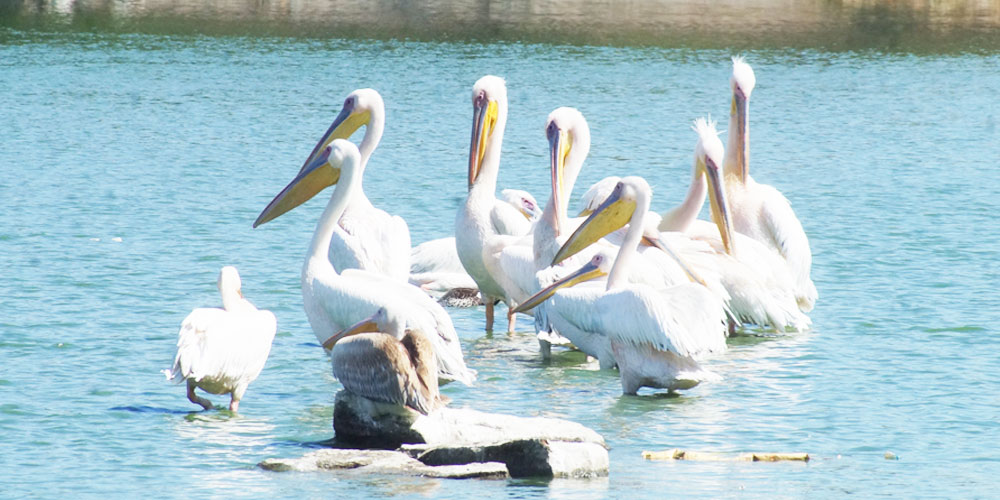Cities constitute a habitat and home for an increasingly large proportion of world’s population, playing a critical role in maintaining ecological balance. Though cities occupy just 2 percent of the Earth’s surface; their inhabitants consume 75% of the planet’s natural resources. The problems caused by urbanization are enormous and varied. Accelerated urban growth presents several difficult challenges for the natural environment in Indian cities. Increasing pollution of water and air degrades ecosystem. Healthy ecosystems and biological diversity are necessary for our cities to function properly. Ecosystems provide three main kinds of services to the city: provisioning of food, fiber, and fuels; regulating through purification, detoxification and mitigation of droughts and floods; and enriching the spiritual, aesthetic and social life of urban dwellers. Besides provisioning of ecosystem services, diverse ecosystems are home to a variety of important bio-diverse floral and faunal species. A continuous encroachment and transformation of an ecosystem from woodlands, grasslands, coastal areas, wetlands and water bodies into urban concrete jungles further degrade them. The remaining green spaces in many cities have been transformed from their original state and species composition to human-designated landscaped and pesticide-intensive parks.
India, one of the world’s most bio-diverse, rapidly urbanizing countries where nature seems a lesser priority trumped by water supply, paving, housing, education, health and other issues. Ecosystem services can address many of the challenges that cities increasingly face, and the false dichotomy between environment and development is nowhere as easy to disprove as in cities. Clean air, safe drinking water, and protection from climate change effects are all highly relevant to human development in cities and many forms of poverty are caused or exacerbated by a lack of access to these ecosystem services. These negative externalities of urban growth are borne disproportionately by the poor, who do not have access to procure clean drinking water and health services. However, biodiversity can be part of solutions to many problems which can be an integral part of urban infrastructure which prevents flooding, mitigate extreme temperatures and filter pollution as well as be promoting tourism and better health. Moreover, green spaces in or near cities also recharge and cultural services including aesthetics and recreation, all leading to healthier lifestyles. Urban biodiversity and ecosystems deliver myriad other benefits, from underpinning social and economic development to climate change mitigation and adoption.
Conservation of local urban biodiversity is as essential and paramount to global ecosystem and conservation, sustainability, and human survival on the planet. Biodiversity Act 2002, enacted by Government of India provides an opportunity to Urban and Rural local governments to document and register the biodiversity in their area and prepare an action plan for conservation and further to constitute Biodiversity Management Committee (BMC) to execute and manage the conservation plan. As Bhuj is home to several endangered floral and faunal species and diversity of ecosystem in terms of forests, wetlands, hill ranges and so on, but the process of urbanization has ignored the importance of biodiversity in the city and the important functions and ecosystem services they provide, initiatives to conserve the biodiversity and ecosystem on which they depend have been started in the city through citizen’s actions and governance provisions laid down in the Biodiversity Act, 2002.
India, one of the world’s most biodiverse, rapidly urbanizing countries where nature seems a lesser priority trumped by water supply, paving, housing, education, health and other issues.Ecosystem services can address many of the challenges that cities increasingly face, and the false dichotomy between environment and development is nowhere as easy to disprove as in cities. Clean air, safe drinking water, and protection from climate change effects are all highly relevant to human development in cities and many forms of poverty are caused or exacerbated by a lack of access to these ecosystem services. These negative externalities of urban growth are borne disproportionately by the poor, who do not have access to procure clean drinking water and health services. However, biodiversity can be part of solutions to many problems which can be an integral part of urban infrastructure which prevents flooding, mitigate extreme temperatures and filter pollution as well as promote tourism and better health. Moreover, green spaces in or near cities also recharge and cultural services including aesthetics and recreation, all leading to healthier lifestyles. Urban biodiversity and ecosystems deliver myriad other benefits, from underpinning social and economic development to climate change mitigation and adaption.
Conservation of local urban biodiversity is as essential and paramount to global ecosystem and conservation, sustainability, and human survival on the planet. Biodiversity Act 2002, enacted by Government of India provides an opportunity to Urban and Rural local governments to document and register the biodiversity in their area and prepare an action plan for conservation and further to constitute Biodiversity Management Committee (BMC) to execute and manage the conservation plan. As Bhuj is home to several endangered floral and faunal species and diversity of ecosystem in terms of forests, wetlands, hill ranges and so on, but the process of urbanization has ignored the importance of biodiversity in the city and the important functions and ecosystem services they provides, initiatives to conserve the biodiversity and ecosystem on which they depends have been started in the city through citizen’s actions and governance provisions laid down in the Biodiversity Act, 2002.

